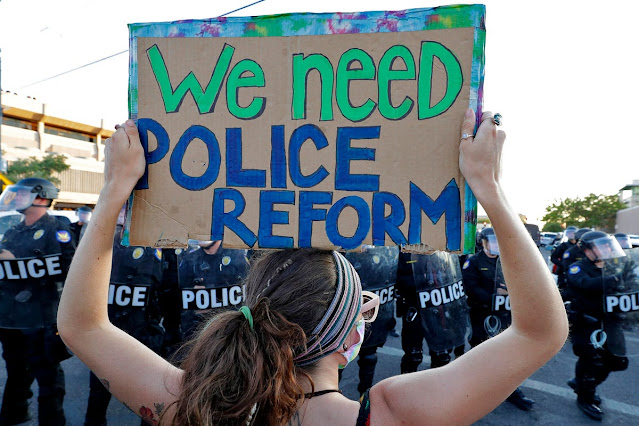Please take a minute and a half to watch this powerful ad. I promise that, unless you've seen it before, you will never guess what the ad is selling.
As Brian Klass wrote, the ad is part of New Zealand's effort to attract a different kind of cop. His point was that focusing merely on what police officers do (ie, training, body cameras, etc.) isn't enough. We also have to focus on who they are. I wrote something similar a couple of years ago.
In his piece, Klass summed up the problem by writing, "To put it bluntly, white men with authoritarian personalities are disproportionately likely to be drawn to policing." As long as the "warrior mentality" dominates policing, the profession will continue to attract authoritarian personalities. As we see with the killing of Tyre Nichols, that includes Black men with authoritarian personalities.
The anecdote to the warrior mentality in policing is the guardian approach.
Both Warriors and Guardians seek to protect the communities they serve, of course, but the guardian mindset takes both a broader and a longer view of how to achieve that goal. Put simply, the guardian mindset prioritizes service over crime-fighting, and it values the dynamics of short-term encounters as a way to create long-term relationships. It instructs officers that their interactions with community members must be more than legally justified; they must also be empowering, fair, respectful, and considerate. It emphasizes communication over command, cooperation over compliance, and legitimacy over authority. In the use-of-force context, the Guardian mindset emphasizes restraint over control, stability over action. But the concept is even broader; it seeks to protect civilians not just from crime and violence, but also from indignity and humiliation.
The warrior model of policing is steeped in dominance as a response to fear, whereas a guardian mentality is rooted in the long-term strategy of building partnerships with the community via trust.
I don't necessarily agree. The issue isn't gender, but confronting the fact that we've elevated the toxic attributes that have traditionally been assigned to men in a patriarchal culture. Here is Riane Eisler talking about the way that gender stereotypes are the foundation on which domination (ie. authoritarian) systems are built.
Let's go back to the video above from New Zealand. The final graphic contained the question: "Do you care enough to be a cop?" That is a powerful way of elevating qualities like empathy and caring. Contrast that with this recruitment video:
Those recruitment videos tell you all you need to know about the vision of the two police departments. New Zealand was looking for guardians and Newport Beach wanted warriors.
So yes, we need more female police officers. But we need to go much deeper than that. Feminism (ie, elevating characteristics that have been stereotypically assigned to women) is a foundational part of any real police reform.





Fascinating. Thanks for sharing. The second video has additional resonance in just how much the GOP and the right depends on stoking fears for success. Now, I hesitate in quarrel in any way, lest that feed the authoritarian male structure, but let me add three qualifications.
ReplyDeleteFirst, I know you and they don't mean to denigrate fear itself or calling attention to it. Fears of immigrants and others taking away "our" just deserts is one thing,but black fears of police are real and justified. And calling attention to them out could make clear why they better get out and vote and could breed compassion among whites as well.
Second, much as I wish otherwise, we could wait a long time to solve this problem by changing attitudes in so genial a way. It's not easy to create a culture from scratch, and it is not wrong simultaneously to prioritize regulation, criminal prosecution, and outrage. In fact, those too can change attitudes. After all, making clear that certain expectations are just not welcome could be fastest way to discourage those who share those expectations from flocking to the police and encourage others to do so.
Last, again hate to say it, but I didn't think the ad was all that great. It truly is hard to know what it is selling. Much comes off as mumbling or otherwise unclear. What are people doing and saying? Has someone taken the initiative, stuck with the child, and brought reinforcements, or is this just a succession of passers-by who take a generous interest and, getting no response, leave? Are they even police? I hope so, which would make them a model for just the kind of compassionate police we're calling for, and indeed I'd be leery if they are not. Maybe not in Nancy's community, but in New York City it's important for kids to grow up thinking they'd be just plain insane to follow strangers, whatever they're offering. To put it another way, at least some of that frightening and truly awful last video arises just from today's production values.